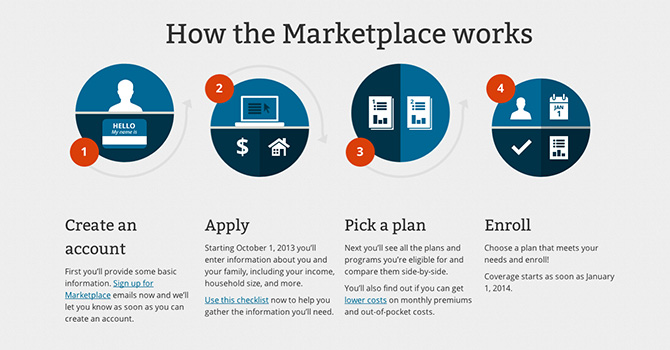Introduction to Health Insurance Marketplace
The Health Insurance Marketplace, a pivotal element of the healthcare system, serves as a structured platform where individuals and families can shop for and enroll in affordable health insurance plans. Born from the need to make health insurance more accessible and comprehensible to the public, the Marketplace has evolved considerably, adapting to changing healthcare laws and consumer needs.
Types of Health Insurance Plans
Understanding the variety of plans available in the Health Insurance Marketplace is crucial. The options, including Health Maintenance Organizations (HMOs), Preferred Provider Organizations (PPOs), Exclusive Provider Organizations (EPOs), and Point of Service (POS) plans, cater to different needs and preferences. High-deductible plans, a common choice for those seeking lower premiums, warrant a closer look to comprehend their long-term implications.
Eligibility Criteria
Eligibility for Marketplace plans primarily hinges on age and income. However, several exceptions and special conditions, like existing health conditions or family size, also play a significant role. Knowing these criteria ensures that you find a plan that’s not just affordable but also right for your specific situation.
The Enrollment Process
The process of enrolling in a health insurance plan through the Marketplace is a critical step. This section provides a comprehensive guide to the enrollment process, emphasizing the importance of being aware of deadlines and the specifics of the open enrollment periods.
Financial Assistance and Subsidies
Many individuals are eligible for financial assistance when purchasing health insurance through the Marketplace. Understanding how to calculate your eligibility and apply for subsidies can significantly lower the costs of your healthcare.
Comparing Health Insurance Plans
Choosing the right health insurance plan requires careful comparison. Key factors like coverage, deductibles, out-of-pocket costs, and network restrictions should be considered. Additionally, this section provides resources and tools to help in comparing different plans effectively.
The Role of Health Insurance Brokers
Health insurance brokers can be invaluable in navigating the Marketplace. They offer expertise in selecting the most suitable plan and understanding the intricate details of various options. This section guides on how to find and utilize the services of a reliable broker.
State-Specific Marketplaces
The Health Insurance Marketplace varies across states, each with its unique set of rules and offerings. This section helps in understanding and navigating the specific marketplace of your state.
Health Insurance Marketplace for Businesses
For small business owners, the Marketplace presents various options and benefits, including tax incentives. Understanding these can lead to substantial savings and better coverage for employees.
Legal Rights and Protections
It’s crucial to understand the legal rights and protections afforded to individuals in the Health Insurance Marketplace. This includes knowledge about coverage rights and the procedures for resolving disputes or filing appeals if necessary.
Impact of Healthcare Reforms
Healthcare reforms have significantly impacted the Health Insurance Marketplace. This section delves into recent changes, their implications for consumers, and what might be expected in the future, providing valuable insight into the dynamic nature of healthcare policies.
Technology and the Marketplace
The integration of technology has transformed the Health Insurance Marketplace, making it more accessible and user-friendly. We explore the role of online platforms and mobile applications in enhancing the user experience, from plan comparison to enrollment.
Health Insurance Tips for Beginners
For those new to the world of health insurance, this section offers practical tips to avoid common pitfalls. It emphasizes essential considerations for first-time buyers, ensuring a more informed and confident approach to selecting a health insurance plan.
Conclusion
Navigating the Health Insurance Marketplace can be a daunting task, but with the right information and resources, it becomes a manageable and empowering process. By understanding the types of plans, eligibility criteria, enrollment processes, and financial assistance available, individuals and businesses can make informed decisions
FAQs
What is the best way to compare health insurance plans in the Marketplace?
Comparing health insurance plans involves looking at factors such as coverage details, deductibles, premiums, out-of-pocket costs, and provider networks. Utilizing comparison tools available on the Marketplace website can simplify this process.
Can I enroll in a health insurance plan outside the open enrollment period?
Enrollment outside the open enrollment period is generally limited to qualifying life events, such as marriage, birth of a child, or loss of other coverage, which allow for a special enrollment period.
Are there penalties for not having health insurance through the Marketplace?
As of my last update, the federal mandate for having health insurance has been repealed. However, some states have their own mandates and penalties, so it’s important to check your state’s regulations.
How does the Health Insurance Marketplace handle pre-existing conditions?
Health plans in the Marketplace cannot deny coverage or charge more due to pre-existing health conditions. This protection ensures that individuals with existing health issues have access to health insurance.
What types of financial assistance are available in the Marketplace?
Financial assistance includes premium tax credits, which lower your monthly premium, and cost-sharing reductions, which reduce out-of-pocket costs for deductibles, copayments, and coinsurance.
How does the Health Insurance Marketplace benefit small businesses?
The Marketplace offers Small Business Health Options Program (SHOP) plans, providing small businesses with cost-effective group health insurance options, often accompanied by tax credits and other benefits.
